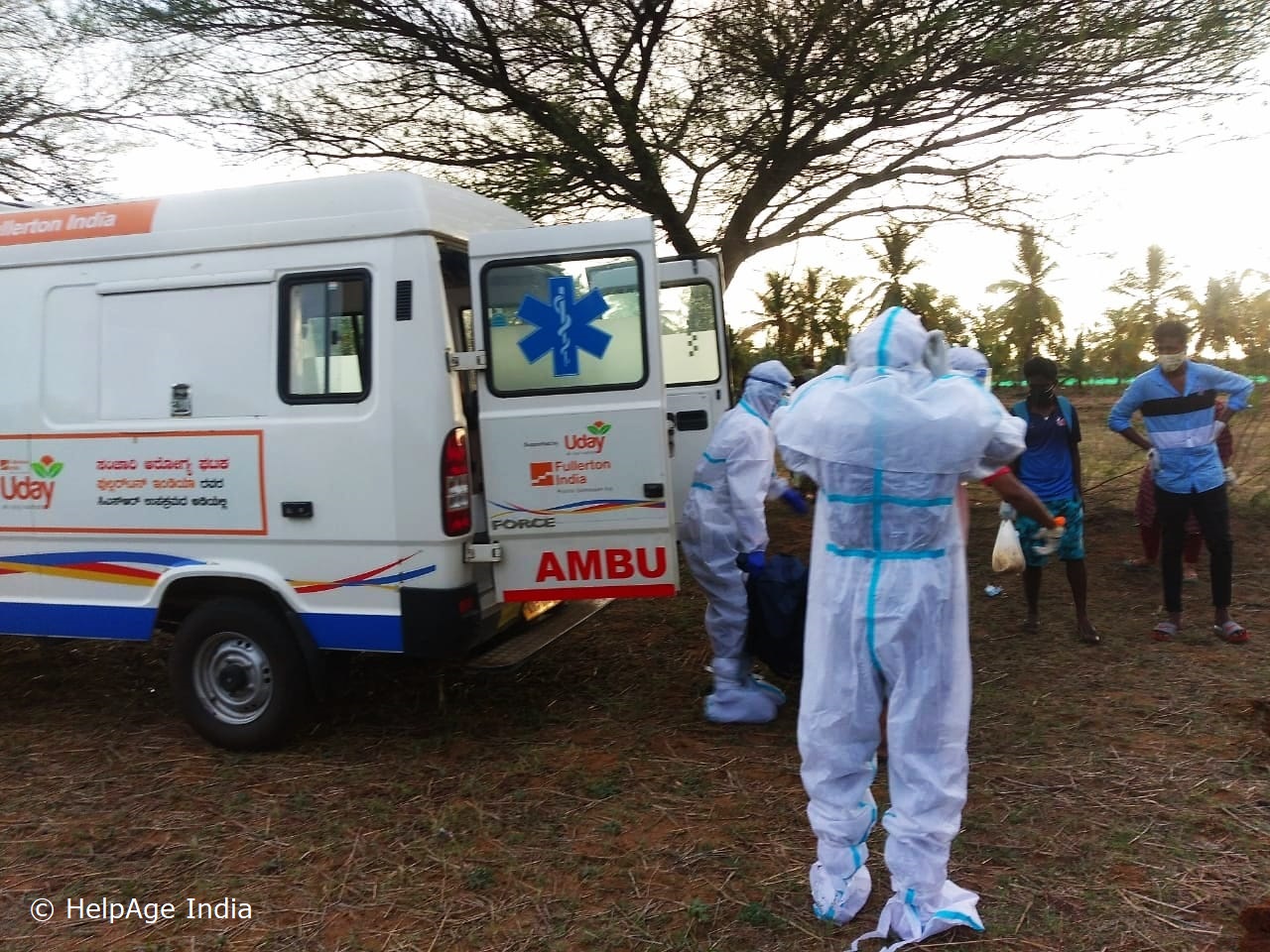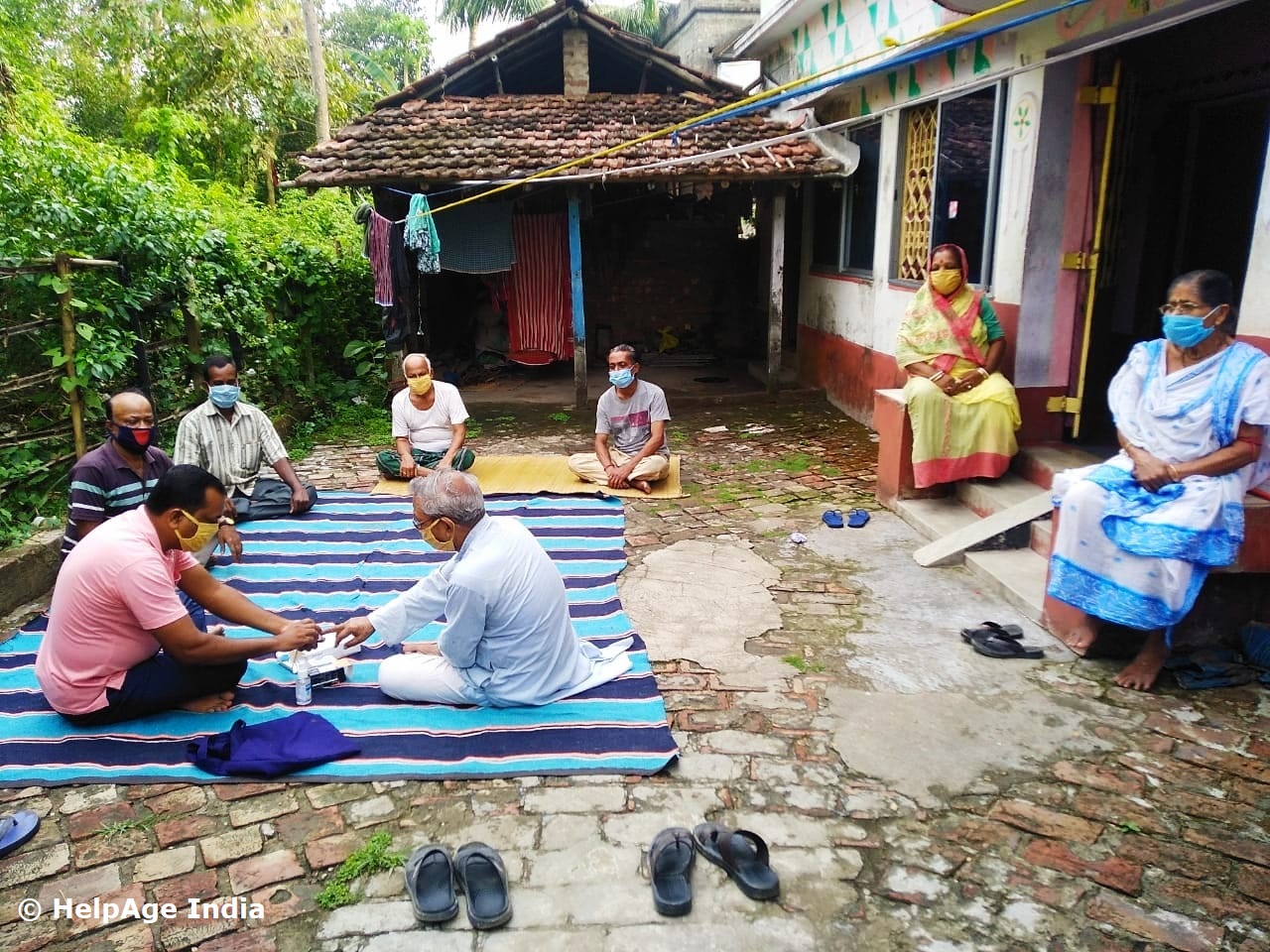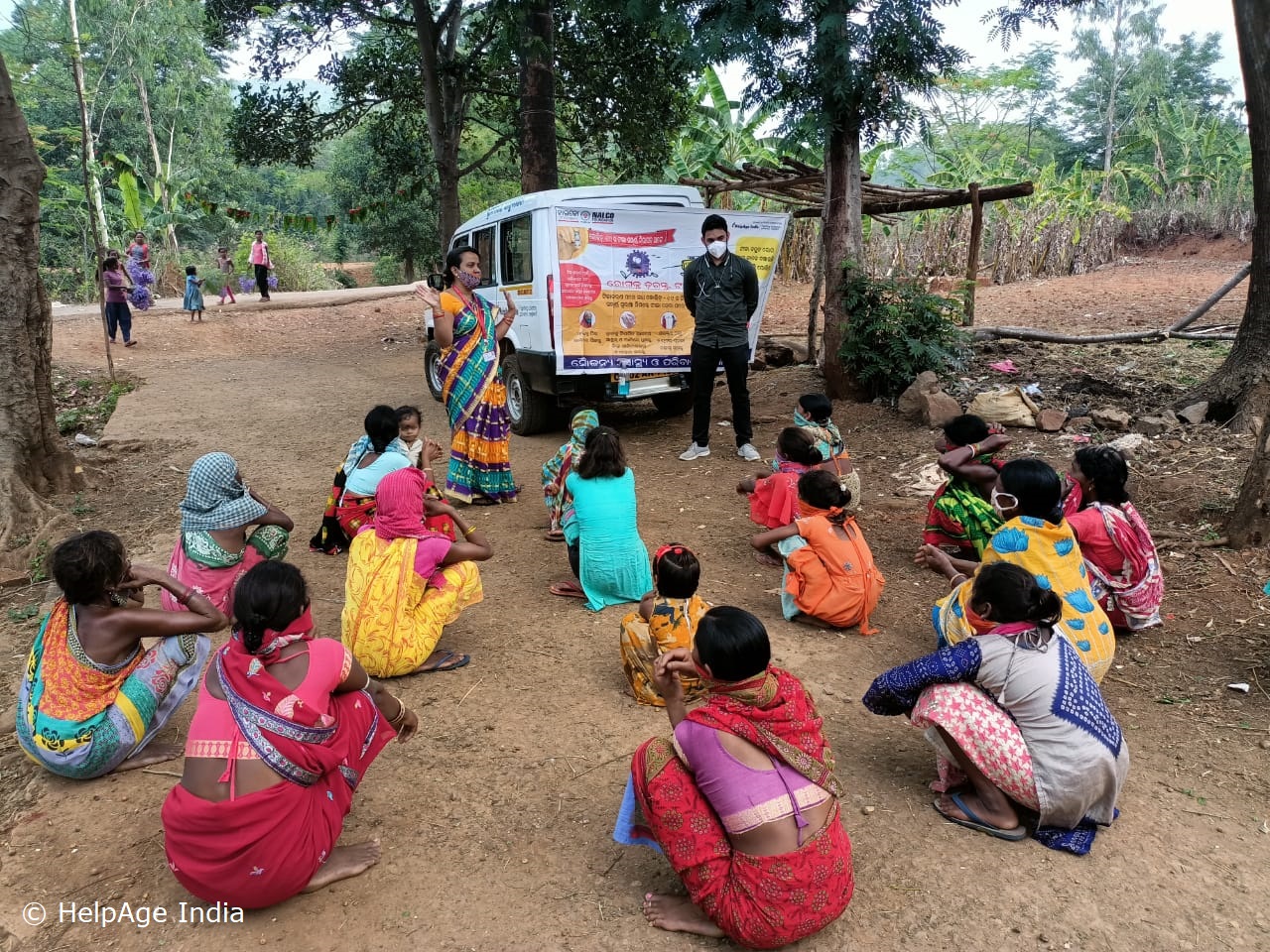
India is experiencing a catastrophic surge of the COVID-19 pandemic and older people are at greatest risk.
HelpAge India field workers are at the forefront of the fight against the pandemic and are committed to helping the most marginalised. But they have to overcome many challenges such as a lack of vaccines, basic supplies, and poor access to many areas.
Here is what field staff at HelpAge India say about the challenges older people are currently experiencing in this pandemic and how they can be helped.
Dr. Veena Dhawan, Medical Consultant in a mobile health unit working in Rangpuri area, Delhi.
“Here in Delhi, many older people live in poor conditions, and if they do not earn money, they do not have enough to live on, and their needs are not met. Now, due to COVID-19, many have little work, and their life has become even more difficult.
Moreover, many of them have underlying medical conditions such as hypertension or diabetes.
We have also found that older people in these poorer areas are less aware of this pandemic than younger people.
We advise older people not to leave their homes. Unfortunately, many are not able to afford it. If an older person lives with a family, younger relatives can go for food and medicine. Older people living alone have to go out on their own.
Older people can get vaccines for free at vaccination points or for a small cost at private centres. They trust and rely on vaccines and there is a good level of trust in doctors and medicine.
Many older people would like to go and get vaccinated, but there are just not enough vaccines for everyone.
India needs more vaccines – this is our top priority.
India is not a small country. If the current vaccine situation continues, the entire population will not be vaccinated by the end of this year.
Social workers visit homes and register older people for vaccinations. A person then receives a message inviting them to the vaccination site on the designated date.
We spread awareness about COVID-19 to older people through our Mobile Health Unit (MHU) and distribute medication to them. They come to the MHU for free medication on a regular basis, and they are all grateful to HelpAge.
We use the MHU to educate them about vaccines and encourage them to get vaccinated so they can protect themselves and their families.”

Md Shahnawaz Ahad, Team Lead (Field Response Leader), Delhi.
“COVID-19 has had a significant negative impact on our lives, especially for older people. Isolation and neglect have increased several folds as a result of the lack of socialisation during lockdown. Older people have been the hardest hit by the digital divide. Over the pandemic, there has also been an increase in violence against older people.
Prioritization of older people is the need of hour and the majority of them want separate COVID-19 security policy and regulations. Isolation, neglect, and exploitation are among their main concerns.
During the second wave, the local community, NGOs and community-based organisations stood firm during the second wave and provided the required help. As a result of the country’s scarcity of oxygen, a number of organisations have started an effort called Oxygen on Wheels, which not only gives oxygen to those in need, but also COVID-related help in general, such as medication.
Many good organisations have emerged as the backbone of COVID assistance in the majority of the country’s states. They delivered medication, oxygen, and other life-saving supplies to people’s homes. In such way HelpAge India has been working on the ground to provide relief to elderly.
Since the second wave, India’s health care system has been facing a lot of difficulties. Hospitals are overburdened. Access to healthcare for older people is difficult, especially in rural India where there is insufficient infrastructure and shortage of health workers.
Psychosocial support hotline called Elder Line spreads awareness about vaccinations among people, we provide them with free travel to vaccination sites with the help of Uber Service. However, the digital divide among older people makes it difficult for them to access the vaccine. About 70% of India’s older population lives in rural areas where vaccination is difficult to access.”

Mr. Prakash Mahadevaiah, Social Protection Officer in a mobile health unit, Chamarajanagar District, Karnataka.
“I work directly with older people who have health problems where some people and organisations are doing a good job to help older people.
But the government does not have programmes focused on older people which has caused the death rate in our area to be very high. Our government and the local administration have completely failed.
Most of those in the working class are suffering from food shortages. If they have any health problems, they do not know how to solve them. In hospitals, their needs are often neglected, and such patients do not receive proper care.
There is an acute shortage of ventilators in hospitals.”
